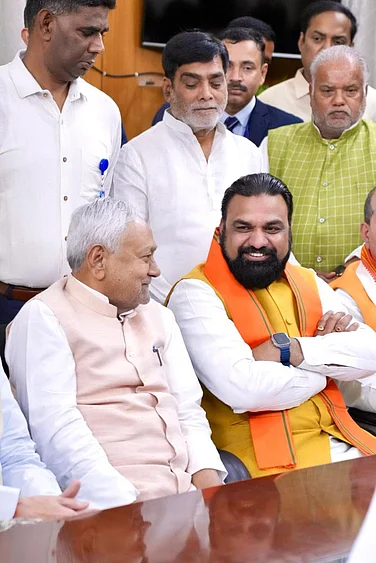Hundreds of application records have gone missing from the RTIOnline portal of the union government, a platform frequently utilized by citizens to submit requests for government information. This disappearance has been verified by numerous RTI activists. The Department of Personnel and Training (DoPT) is responsible for overseeing the portal and providing guidance and regulations on the proper procedure for government officials when dealing with RTI applications.
The RTIOnline portal offers citizens a convenient method of submitting RTI applications by allowing them to make a payment of ₹10 through various digital payment channels. This modern approach stands in contrast to the traditional method of mailing applications via post along with a pre-purchased and stamped postal cheque. The portal's maintenance falls under the responsibility of the National Informatics Centre (NIC).
As reported by The Hindu, the RTIOnline portal has successfully processed more than 5.83 million applications since its inception in 2013 until 2022. The volume of applications has exhibited a consistent increase, as demonstrated by the submission of over 1.26 million applications in the year 2022 alone. Despite these statistics, the Department of Personnel and Training (DoPT), which holds the administrative authority over the portal, has not provided a response to inquiries made by The Hindu regarding the missing data.
"The govt of India is making arbitrary changes to the RTI online portal without informing general public of it's clear intentions. These unplanned changes are harming democratic activities.", said Srinivas Kodali, a tech expert.
The RTIOnline platform provides citizens with the opportunity to submit applications to various entities, including Union Ministries, their Departments, subsidiary institutions, regulators, India's foreign missions, and certain Union Territories' governments. Individuals have the choice to either file RTI applications by setting up an account on the RTIOnline portal and paying a fee of Rs 10 per application or by sending their applications through postal mail along with a purchased and stamped postal cheque. The oversight and upkeep of the portal are managed by the National Informatics Centre (NIC).
In the previous year, the Union Government decided to discontinue the option of creating new accounts on the RTIOnline portal, attributing this move to the website experiencing a "heavy load." For current account holders, it is necessary to submit at least one application within a span of six months to maintain their accounts.
The Right to Information Act of 2005 marked a significant milestone in India by granting citizens the authority to demand public information from governmental bodies, thereby subjecting them to scrutiny. However, beginning in 2014, the effectiveness of obtaining information through applications or appeals has been hindered by a noticeable reluctance within the ruling establishment and the prolonged absence of appointed Information Commissioners.
Annually, approximately six million applications are submitted under the RTI Act, making it the world's most widely employed legislation promoting transparency. National assessments reveal that a considerable portion of these applications originate from the most economically disadvantaged citizens. RTI activists Anjali Bhardwaj and Amrita Johri noted that by affording each of India's citizens the right to access government documents and records, the law has the potential to create 1.3 billion individuals who serve as whistleblowers and auditors.
In 2019, regressive amendments were introduced to the RTI Act that removed the statutory safeguards guaranteeing commissioners' fixed tenures and elevated status. Despite considerable opposition both inside and outside Parliament, the government pushed forward the RTI (Amendment) Act, which permits the Central government to dictate the duration and salaries of Information Commissioners.
Since May 2014, not a single appointment to the Central Information Commission (CIC) has been made without citizens resorting to legal action. Yashvardhan Kumar Sinha currently holds the position of Chief Information Commissioner. The Central Information Commission stands as the highest appellate body under the Right to Information Act.
Experts contend that the passage of the Digital Personal Data Protection Bill during the most recent parliamentary session effectively amends the RTI Act in a roundabout manner. This bill, which has now been enacted, prohibits government agencies from sharing any form of private information, regardless of potential public interest.
On Thursday, Mallikarjun Kharge, the President of the Congress, alleged that the Narendra Modi government is gradually dismantling the Right to Information (RTI) Act as a deliberate plot to undermine democracy. In reference to the significant number of missing applications from the RTI website, Kharge dismissed it as a minor occurrence, emphasizing that the actual harm runs much deeper within the system.
"The Modi government is killing the RTI Act bit by bit. This is not just an attack on the constitutional rights (of people) but another step in the conspiracy to end democracy," he said in a post in Hindi on 'X', formerly Twitter. He also alleged that the proposed amendment of the RTI Act under the guise of the data protection law is "a cowardly attack on the right to information by an authoritarian government".






















